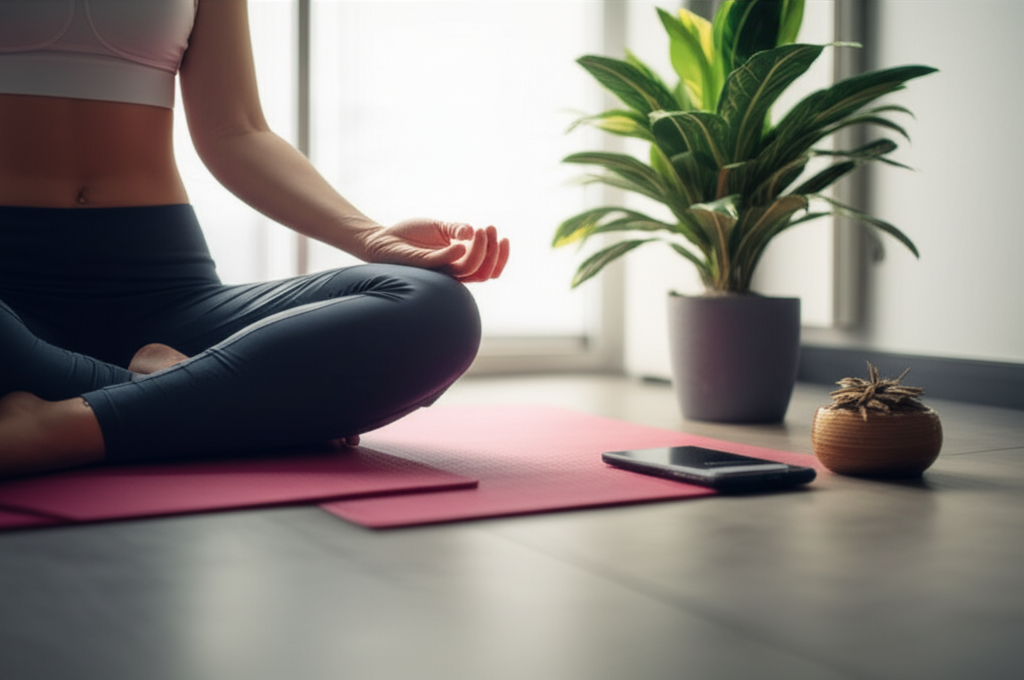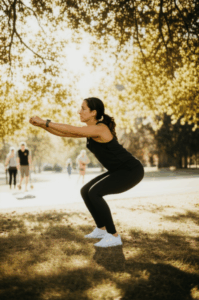The pursuit of physical well-being often conjures images of gyms, strict diets, and rigorous routines. Yet, a fundamental truth often overlooked is the profound and undeniable connection between our mental state and our physical health. It’s not merely about “mind over matter”; it’s about a deeply integrated system where mental fitness actively shapes and supports physical vitality. Understanding and harnessing this mind-body connection can unlock a holistic path to a healthier, more resilient you.

The Indivisible Link: Understanding the Mind-Body Connection
Modern science increasingly confirms what ancient wisdom has long understood: the mind and body are inextricably intertwined. Research in fields like neuroscience, psychology, and psychoneuroimmunology has illuminated tangible links between our thoughts, emotions, and bodily functions. The brain, acting as the command center of the nervous system, sends signals that impact everything from heart rate and hormone production to immune response and inflammation.
A new study by researchers at Washington University School of Medicine in St. Louis revealed that the connection between the body and mind is literally built into the structure of the brain. Parts of the brain controlling movement are connected to networks involved in thinking, planning, and regulating involuntary bodily functions like blood pressure and heart rate. This means calming one can have feedback effects on the other. This literal linkage, which researchers named the Somato (body)-Cognitive (mind) Action Network (SCAN), helps explain phenomena such as why anxiety can cause “butterflies in the stomach” or why exercise improves mood.

The Detrimental Impact of Chronic Stress on Physical Health
One of the most well-documented aspects of the mind-body connection is the body’s response to stress. When we perceive a threat, the brain activates the “fight-or-flight” response, releasing stress hormones like cortisol and adrenaline. While essential for survival in acute situations, chronic stress—the persistent feeling of being under attack—keeps this response system activated.
Long-term activation of the stress response and excessive exposure to stress hormones can disrupt nearly all bodily processes, leading to a heightened risk of numerous health problems.
How Chronic Stress Manifests Physically:
- Cardiovascular Issues: Chronic stress can lead to an increased heart rate, elevated blood pressure, and a higher risk of heart disease, heart attack, and stroke.
- Weakened Immune System: Persistent stress can impair communication between the immune system and the body’s stress response system, leading to a weakened defense against infections and illnesses. It can also cause chronic inflammation, linked to conditions like depression and anxiety.
- Digestive Problems: Stress can disrupt the digestive system, contributing to issues like weight gain or loss, ulcers, irritable bowel syndrome (IBS), and acid reflux. It can also weaken the intestinal barrier, allowing bacteria to enter the body and potentially leading to chronic mild inflammatory symptoms.
- Musculoskeletal Pain: Headaches, muscle tension, and pain are common physical symptoms of stress.
- Sleep Disturbances: Chronic stress often results in exhaustion and trouble sleeping, impacting overall recovery and well-being.
- Metabolic Disorders: Sustained stress can influence blood sugar levels and may increase the risk of conditions like type 2 diabetes and obesity.

Cultivating Mental Fitness for Robust Physical Health
Just as we train our bodies for physical fitness, we can train our minds for mental fitness. Mental fitness involves strengthening neural pathways for objective thoughts, fostering positive emotions, and developing resilience to cope with stress. Strategies that enhance mental well-being directly translate into tangible physical benefits.
Key Mental Fitness Strategies:
1. Mindfulness and Meditation
Mindfulness is a practice of intentionally focusing attention on the present moment without judgment, encompassing thoughts, feelings, bodily sensations, and the surrounding environment. Meditation is a practice that trains attention and awareness to achieve a mentally clear and emotionally calm state.
Physical Health Benefits:
- Stress Reduction: Mindfulness and meditation are highly effective in reducing stress, anxiety, and symptoms of depression.
- Improved Cardiovascular Health: Regular practice can lower blood pressure and heart rate, decreasing the risk of heart disease.
- Enhanced Immune Function: Mindfulness can strengthen the immune system, reduce inflammation, and decrease the body’s “internal alarm” (NF-κB activity), making you less susceptible to diseases.
- Better Sleep Quality: Meditation and mindfulness improve sleep, helping the body recover from mental and physical exhaustion.
- Pain Management: These practices can significantly reduce chronic pain intensity and improve overall quality of life for individuals dealing with pain.
- Brain Changes: Continuous mindfulness practice can lead to beneficial gray matter growth and improved connectivity in the brain, enhancing memory and focus.
2. Cognitive Reframing (Cognitive Reappraisal)
Cognitive reframing, or reappraisal, is an emotional regulation strategy that involves changing how one interprets or perceives a situation to alter its emotional impact. It helps to identify negative thought patterns and replace them with more balanced and realistic perspectives.
Physical Health Benefits:
- Reduced Stress and Anxiety: By reinterpreting stressful events, individuals can decrease negative emotions and downregulate the brain’s emotional threat response (amygdala activity).
- Increased Resilience: Reframing helps build psychological resilience, allowing individuals to cope better with adversity.
- Positive Outlook: It encourages looking at situations from a more positive angle, leading to healthier emotional responses and a more constructive approach to challenges.
3. Emotional Regulation Skills
Emotional regulation is the ability to manage the intensity, duration, and expression of emotions in a healthy and constructive way. This involves recognizing emotional states, understanding triggers, and responding in a manner that aligns with personal values and goals.
Physical Health Benefits:
- Lowered Risk of Chronic Illnesses: Effectively managing emotions reduces the physical toll of stress, which is linked to conditions like heart disease, high blood pressure, and a weakened immune system.
- Improved Overall Well-being: Individuals skilled in emotional regulation tend to experience more positive emotions and less negative affect, contributing to better physical health.
- Enhanced Resilience: Strong emotional regulation skills lead to greater resilience, helping individuals navigate life’s challenges more effectively.
- Protective Brain Function: Those who regulate emotions well may avoid stress-induced changes in the amygdala, protecting cardiovascular, nervous, endocrine, and immune systems.
4. Therapy and Counseling
For deeper-seated mental health challenges that impact physical well-being, professional help through therapy or counseling can be transformative. Cognitive Behavioral Therapy (CBT), for instance, is an evidence-based talking therapy that helps individuals change unhelpful thought patterns and behaviors.
Physical Health Benefits:
- Management of Stress-Related Conditions: CBT can help with conditions such as sleep problems, chronic pain, and irritable bowel syndrome (IBS), which are often exacerbated by mental distress.
- Improved Coping Mechanisms: Therapy teaches practical skills and strategies to identify and reframe negative thoughts, reduce worry, and build lasting coping skills against anxiety and depression.
- Holistic Approach: Counseling helps individuals deal with emotional issues, upsetting physical health conditions, and difficult life events, fostering a more holistic approach to health.

Integrating Mental Fitness into Daily Life
Cultivating mental fitness doesn’t require drastic lifestyle overhauls; small, consistent practices can yield significant results.
- Dedicated Practice: Engage in formal mindfulness meditation for a few minutes each day. Apps like Calm can guide you through exercises for sleep, stress, and anxiety.
- Mindful Moments: Incorporate informal mindfulness into daily activities. Pay attention to your senses while eating, walking, or engaging in routine tasks.
- Breathing Exercises: Practice deep, slow breathing to calm the mind, reduce blood pressure, and settle emotions anywhere, anytime.
- Journaling: Writing down thoughts and emotions can help process experiences, prioritize concerns, and recognize triggers, supporting emotional regulation.
- Cognitive Restructuring: When a negative thought arises, consciously challenge it. Ask if it’s based on evidence or opinion and try to reframe it into a more productive perspective.
- Physical Activity: Regular exercise is not only good for physical health but also significantly boosts mood, reduces stress and anxiety, and improves cognitive function by releasing endorphins and increasing oxygen flow to the brain.
- Seek Support: Don’t hesitate to connect with trusted friends, family, or a mental health professional if you’re struggling to manage stress or emotional challenges.
Conclusion: A Holistic Path to Well-being
The guide to physical health through mental fitness is a journey of recognizing and nurturing the profound connection between our internal world and our external vitality. By actively engaging in practices that build mental resilience, reduce stress, and foster emotional well-being, we can unlock a powerful self-healing mechanism that benefits every system in our body. Investing in mental fitness isn’t just about feeling better; it’s about building a foundation for a truly healthy, fulfilling, and long life.







